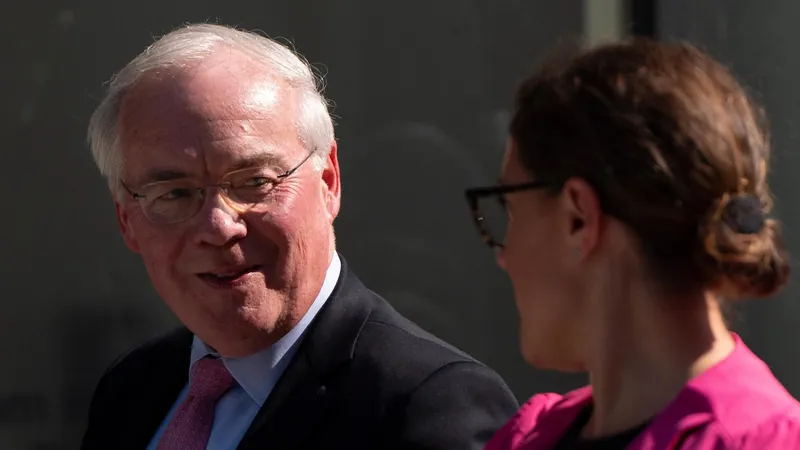
Major Shift: Telegram Will Now Share User Data with Authorities
2024-09-23
Introduction
In a groundbreaking announcement that raises both eyebrows and concerns, the messaging platform Telegram has revealed its decision to share users' IP addresses and phone numbers with law enforcement agencies, provided they present valid search warrants or legal requests. This move is part of an update to its terms of service and privacy policy aimed at dissuading criminal activity on the app. CEO Pavel Durov stated in a post on Telegram, "While 99.999% of Telegram users have nothing to do with crime, the 0.001% involved in illicit activities create a bad image for the entire platform."
A Major Policy Change
This decision marks a significant departure from Durov's previous stance, which was deeply rooted in the platform's commitment to user privacy. Just a month prior, he found himself in legal trouble in France where authorities detained him at an airport, leading to charges related to enabling criminal activities on Telegram. Allegations leveled against him involve serious matters such as the distribution of child abuse imagery and drug trafficking, which he categorically denies.
Criticism and Concerns
Critics have long highlighted Telegram's potential for misuse, citing its large group feature that allows up to 200,000 members, which some argue provides fertile ground for the spread of misinformation, child exploitation, and extremist content. In comparison, other messaging apps like WhatsApp impose a much lower limit on group sizes, which may help mitigate similar risks.
International Scrutiny
Moreover, Telegram has recently faced scrutiny from international authorities. For instance, Ukraine has moved to ban the application on government-issued devices, citing threats posed by Russian activities. This raises important questions regarding the platform’s safety for political dissenters, especially in regions experiencing repression.
Impact on Political Discourse
John Scott-Railton, a senior researcher at Toronto's Citizen Lab, noted that Durov's arrest has led many to reevaluate whether Telegram is still a safe haven for sharing political views, particularly for users in oppressive regimes like Russia and Belarus. He asserts that this latest policy shift has generated fear and confusion among users who felt secure under Telegram's previous promises of privacy.
Content Moderation Challenges
As for the platform’s approach to moderating content, cybersecurity experts express that it remains significantly weaker compared to its competitors. Prior to this new policy, Telegram only provided user information about suspected terrorists, raising concerns about how effectively it could now comply with authorities’ demands regarding illegal content.
Future Directions
Durov did mention the induction of a "dedicated team of moderators" leveraging artificial intelligence to manage problematic content. However, experts like Daphne Keller from Stanford University's Center for Internet and Society argue that simply hiding illicit content from search results might not suffice in meeting legal obligations in France or Europe. She articulated that Telegram might need to go further by removing clear illegal content and notifying authorities about severe cases, such as child sexual exploitation.
Conclusion
With such a pivotal change in its operational policies, Telegram faces an uncertain future. As the tensions between user privacy and governmental oversight become increasingly apparent, many are left wondering: Will Telegram remain a trusted communication tool or devolve into a platform beholden to the whims of various regimes?




 Brasil (PT)
Brasil (PT)
 Canada (EN)
Canada (EN)
 Chile (ES)
Chile (ES)
 España (ES)
España (ES)
 France (FR)
France (FR)
 Hong Kong (EN)
Hong Kong (EN)
 Italia (IT)
Italia (IT)
 日本 (JA)
日本 (JA)
 Magyarország (HU)
Magyarország (HU)
 Norge (NO)
Norge (NO)
 Polska (PL)
Polska (PL)
 Schweiz (DE)
Schweiz (DE)
 Singapore (EN)
Singapore (EN)
 Sverige (SV)
Sverige (SV)
 Suomi (FI)
Suomi (FI)
 Türkiye (TR)
Türkiye (TR)